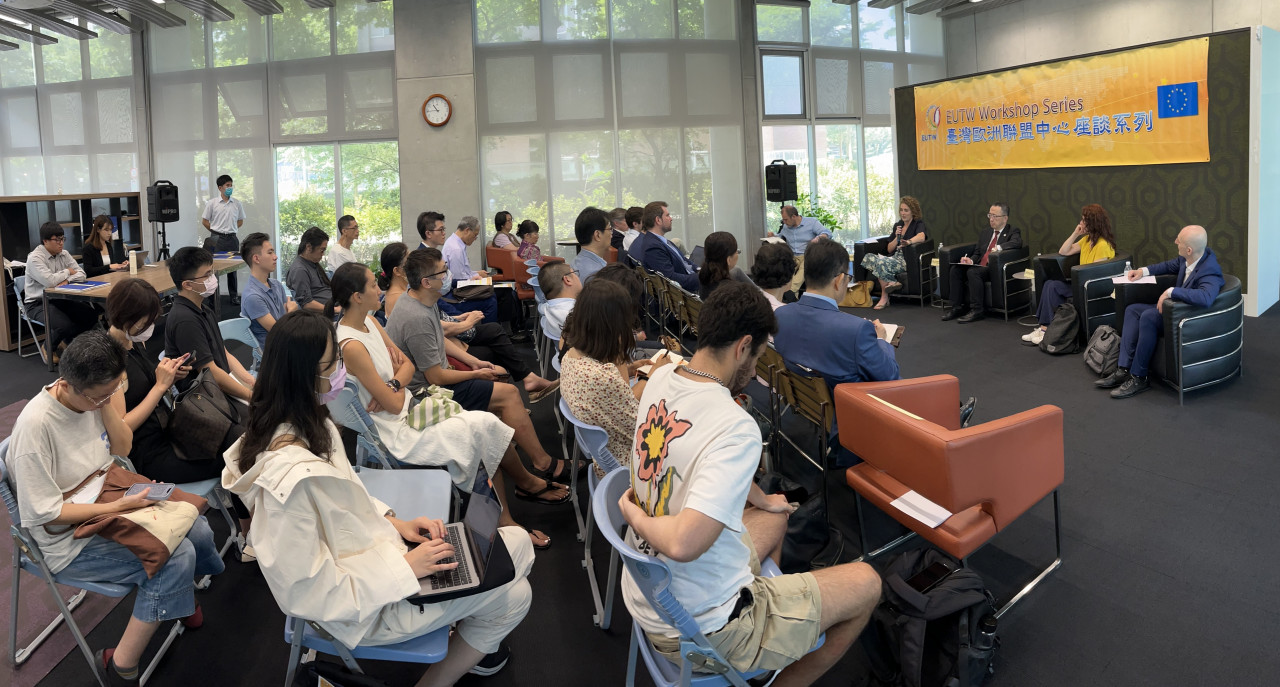The European Union Centre in Taiwan held a workshop titled "The 2024 European Parliament Elections and Their Implications for Europe and Taiwan" on 21 June, 2024 at Room 108, College of Social Sciences, National Taiwan University. The workshop featured many European scholars sharing their insights on the post-election European situation and its potential impact on Taiwan, engaging in discussions with members of the Ministry of Foreign Affairs' European think tank delegation and other distinguished guests in attendance.
The event starts with the speech of Dr. Hungdah Su, Director General of the EUTW. He briefly reviewed the establishment and development the Centre, then summarised the Taiwanese media’s observation of the election results so far. He pointed out that Taiwanese media often regarded this election as the victory of female politicians like Giorgia Meloni, Marine Le Pen, and Ursula von der Leyen, and a loss of male politicians such as Emmanuel Macron and Olaf Scholz. Most Taiwanese media viewed it as a sign of the growing influence of far-right political parties and the weakening of mainstream parties. However, there are still debates about the nature of far-right political parties and their impact on Europe and Taiwan. Therefore, this workshop provided a unique chance to hear the insights from leading European Scholars on these controversial issues.
Then, Riccardo Alcaro, Research Coordinator and Head of the Global Actors Programme, Istituto Affari Internazionali (IAI), and Stefania Benaglia, Head of Foreign Policy Unit, Centre for European Policy Studies (CEPS), share their observations about the election results and their overall impact, whereas Abigaël Vasselier, Director of Policy and European Affairs/Head of Program Foreign Relations, Mercator Institute for China Studies, and Nicola Casarini, Associate fellow at the Istituto Affari Internazionali (IAI) and Global Fellow at the Wilson Center in Washington DC, share their views on the current status of EU-Taiwan relations and its prospect.
After the four European scholars conclude their presentation, they began exchanging their opinions on some highly-debated topics with each other and other attendees. For example: to what extent do far-right political parties anti-China, and whether the growth of their power beneficial or detrimental for Taiwan? On these topics, the divergence of opinions was evident. One presenter claimed that some far-right politicians were very anti-China which is potentially benefiting Taiwan more than Europe. In contrast, others, including some members of the visiting delegation, question the clarity of their anti-China stance and its implications for Taiwan. Despite the failure to reach a consensus on these issues, the intense debate and participants' extensive knowledge prompted diverse perspectives on these matters. Additionally, attendees offered valuable suggestions on addressing complex challenges and strengthening EU-Taiwan relations. From these perspectives, this workshop is undoubtedly a successful and fruitful event.


Social links